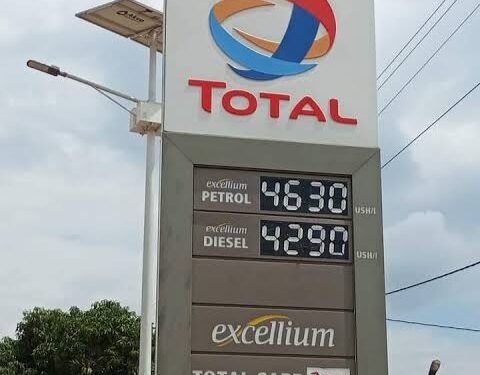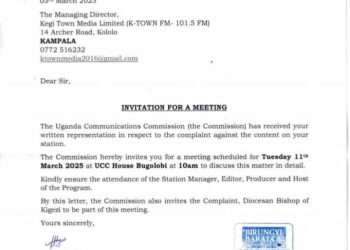The Ministry of Energy and Mineral Development has come out to shield fuel distribution companies in Uganda, against extortion and over charge claims by motorists.
In recent days, fuel prices in Uganda have sky-rocketed to alarming levels, forcing motorists in some cases to buy from neighbouring Kenya.
The rates have increased by more than 500 shillings per litre, with petrol seeing the highest increases, to sell at 4,600 shillings a litre, while that of diesel is now at Shs. 4230.
The ministry says that it largely believes fuel products distributors are operating within acceptable margins, and attributed the escalating consumer prices to an increase in global crude oil prices.
Note has to be taken that global crude oil prices have risen in the past two years, with a barrel rising by USD.80.
Covid-19 restrictions in early 2020 climaxed into economic recessions in some countries, leading to the reduction in crude oil demand. This caused shortages in countries like the UK. It is now believed that the same effects have engulfed Uganda as well.
The recent re-opening of economies has exarcarbated demand from world tiger economies like China, Malysia, Indonesia, in order to feed their manufacturing industries, causing scarcity in third world states.
It is this scarcity that has graduated into soaring fuel prices in third world states, most especially in East Africa, and Uganda has been no exception. However, motorists have blamed suppliers for this stampede.
The energy ministry strongly defended fuel suppliers by contending that petroleum prices in Uganda are still within the reserve prices set by government.
The ministry also clarified that there is no irrevocable evidence, to show that any fuel dealers and marketers in Uganda have grossly violated the reserve price, which the government keeps away from the public eye.
Solomon Muyita, the energy ministry spokesperson said Uganda has a stable regulation and control over oil prices, despite having a free market economy.
He attributed the ratcheting oil prices to disruptions caused by several Covid-19 restrictions in different countries.
On the other side of the coin, there is increasing doubt by the ministry, that reinforced tendences by major oil traders, to increase prices and meet their investments and costs of production has escalated this increase on the global scale.
Okaasai Opolot, the state minister for energy tried to allay consumer fears, and said government is regulating the price levels to match the global trend.
He also instilled hope amongest motorists, asserting that the government is due to secure oil reserves, which will be instrumental in keeping oil to be used in the country for a considerable period of time.
Mr. Okaasai also acknowledged that the increase in the fuel prices is not in Uganda alone. According to him, it is the same case in all the East African countries and Uganda’s case is abeat fair.
On a serious note, motorists are in a state of confusion, due to the fact that such unforetold increases in fuel prices has led them into incurring huge loses.
While talking to this website, Kabuye Musa, a second year student of Journalism and Communication at Makerere University, who also owns a car decried the hiked prices, and said the sad development has downgraded his family living standards.
“I am a student here, but i also work. In the past five months, i used to spend Shs. 150,000 weekly on fuel expenses, but the figure has sharply increased in the past one month. As a result, I am foregoing some needs to fill my car fuel tank, so as to be able to travel,” he angrily remarked.
The soaring fuel prices are expected to force public transport operators and companies, like buses and taxis to further hike the already hiked transport fares, to meet operational expenses, a move that is likely to stir public outrage.
Do you have a story in your community or an opinion to share with us: Email us at editorial@watchdoguganda.com












